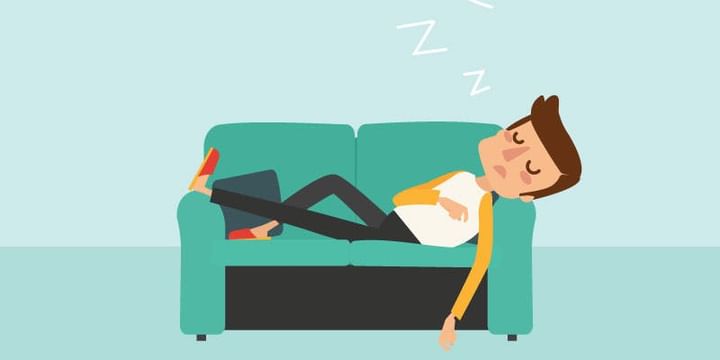Get the App
For Doctors
Login/Sign-up
Last Updated: Jul 26, 2022
BookMark
Report
Need for Sleep!!
Dr. Rakhi AnandPsychologist • 33 Years Exp.PhD - Clinical Psychology, Diploma in Clinical and Community Psychology, MA - Clinical Psychology, BA - Psychology
Sleep helps in restoring brain chemicals and provides rest to the body. Some studies have found that the brain organizes and stores memories during sleep. Lack of sleep can affect our daytime functioning, hormonal balance, appetite, and immune system.
A severe sleep deficit can have the following negative effects:
- Weight gain (or a reduced ability to lose weight): This appears to occur via changes in hormone levels specifically a decrease in serum leptin (a hormone which causes satiety) and an increase in serum ghrelin (a hormone which causes hunger
- Chronic severe fatigue and Decreased productivity: The person feels low on energy and does not feel like working,
- Irritability: the mood is also disturbed and the person may feel sad and irritable.
- Decreased ability to concentrate and Impaired short-term memory
- Depression. Interestingly, depression can cause fatigue, can be caused by fatigue and can be confused with fatigue.
Causes of sleeping difficulties:
- Stress is the number one cause of short-term sleeping difficulties, according to sleep experts. Common triggers include school- or job-related pressures, a family or marriage problem and a serious illness or death in the family.
- Drinking alcohol or beverages containing caffeine in the afternoon or evening, exercising close to bedtime, following an irregular morning and nighttime schedule, and working or doing other mentally intense activities right before or after getting into bed can disrupt sleep.
- Traveling also disrupts sleep, especially jet lag and travelling across several time zones. This can upset your biological or “circadian” rhythms.
- Environmental factors such as a room that's too hot or cold, too noisy or too brightly lit can be a barrier to sound sleep.
- Interruptions from children or other family members can also disrupt sleep.
There are techniques to combat common sleep problems:
- Keep a regular sleep/wake schedule
- Don’t drink or eat caffeine four to six hours before bed and minimize the daytime use
- Don’t smoke, especially near bedtime or if you awake in the night
- Avoid alcohol and heavy meals before sleep
- Get regular exercise
- Minimize noise, light and excessively hot and cold temperatures where you sleep
- Develop a regular bedtime and go to bed at the same time each night
- Try and wake up without an alarm clock
- Attempt to go to bed earlier every night for certain period; this will ensure that you’re getting enough sleep
In case you have a concern or query you can always consult a specialist & get answers to your questions!



+1.svg)
